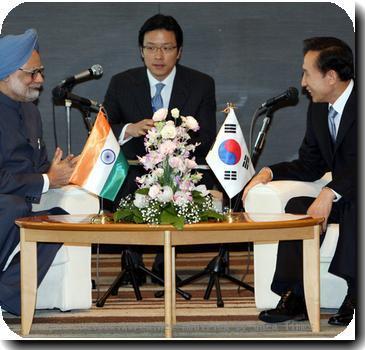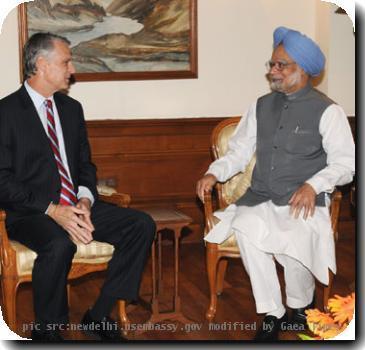Fiscal consolidation key to avoiding double-dip global recession: Manmohan Singh
By ANIMonday, June 28, 2010
TORONTO - Urging industrialized countries to avoid following contractionary policies simultaneously, Indian Prime Minister Dr. Manmohan Singh on Sunday warned that such action could provoke double-dip recession, which the global financial community could not afford.
Addressing the plenary session at the fourth Group of Twenty (G-20) Summit here, Dr. Singh said such policies would have very negative effects on developing countries like India and on the prospects for achieving the Millennium Development Goals (MDGs).
“I recognize that there are uncertainties and that it is difficult to strike the right balance. But on the whole, I feel that the risks of destabilizing recovery are too great. We have a much greater risk of deflation than inflation. We must give primacy to consolidating the recovery, while also taking measured steps to deal with sovereign debt problems,” Dr. Singh said.
Reiterating the need for careful coordination of policies among the G-20, Dr. Singh said: “Fiscal consolidation must obviously have high priority in those advanced deficit countries that are experiencing exceptional fiscal stress, and where markets have signalled serious concern.”
He appealed to other advanced countries to opt for a more “calibrated exit” from stimulus.
“We should adopt a carefully differentiated approach, reflecting the circumstances of individual countries,” the Indian Prime Minister said.
Suggesting that phasing of fiscal action is important, Dr. Singh said major industrialized countries needed to take credible steps impacting on fiscal deficit significantly over time.
Reflecting on the responsibility of developing nations, Dr. Singh said there was a need for them to “rebalance their strategies to rely less upon exports and more on domestic demand”.
He said that in many developing countries, the best is done through increased investment directed to infrastructure, as this would sustain growth in the short run by offsetting the contractionary effect of lower exports.
He also said that growth in developing countries would be greatly helped if threats of “new protectionist measures in industrialized countries are firmly resisted and existing barriers to trade are reduced”.
In conclusion, Dr. Singh said that India has been pursuing an effective fiscal and monetary stimulus that has contained the effect of the global crisis on the economy.
He said that between 2004 and 2008, the Indian economy had grown at the rate of nine percent, but had recorded seven percent growth in 2009 and 2010 because of the global fiscal crisis impact.
“We expect to grow by 8.5 percent in 2010-11 and we hope to be back to nine percent by 2011-12,” Singh said, adding that efforts were on to give a strong push to investment in infrastructure through the private-public partnership (PPP) route.
India has a well regulated financial sector and would persevere through implementation of financial sector reforms and increase systemic stability in the financial sector By Ashok Dixit (ANI)

